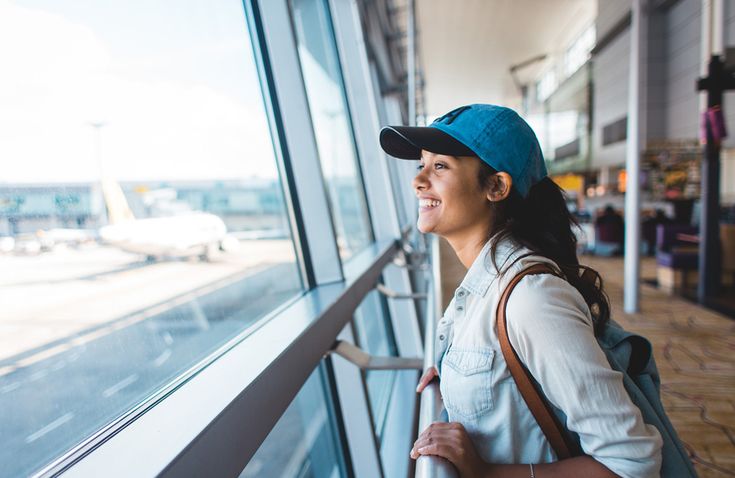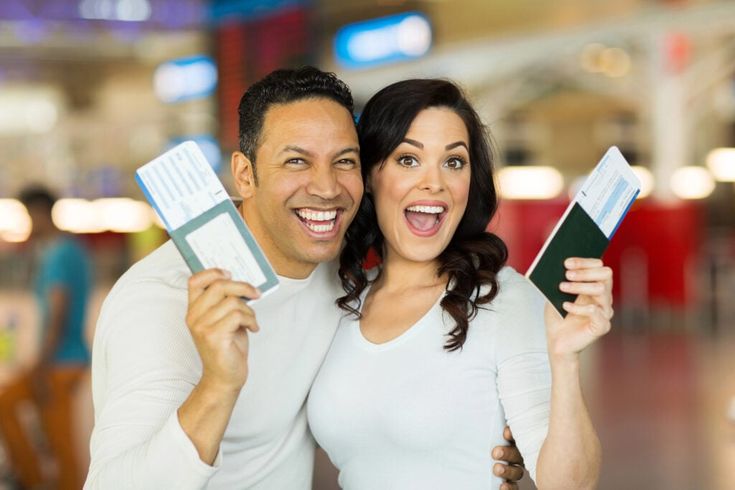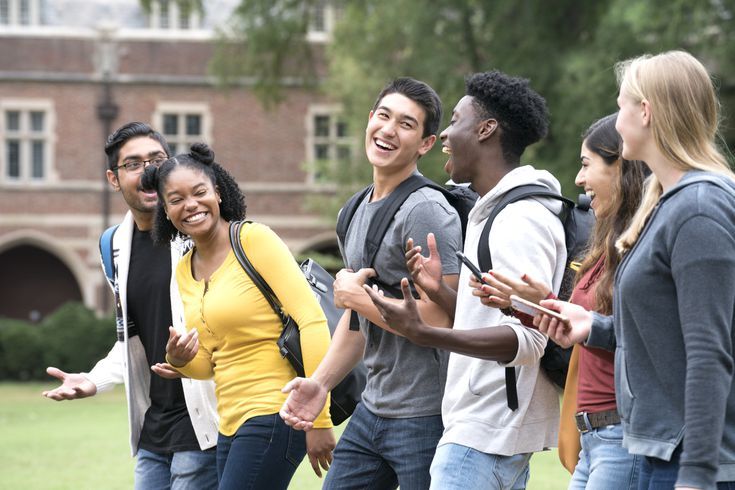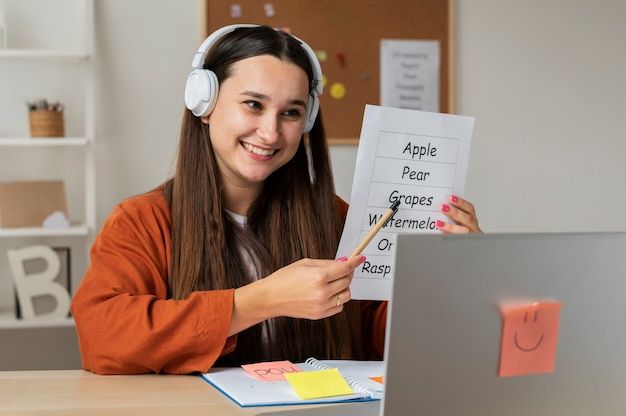Top Reasons for Student Visa Rejections and How to Avoid Them
Gaining a student visa is a critical step in pursuing international education. However, many applicants encounter unexpected rejections due to various reasons ranging from incomplete documentation to inadequate financial proof. In this comprehensive guide, we will explore the top reasons for student visa rejections and present actionable strategies to avoid them. In doing so, we integrate valuable insights from related visa topics, such as Pathway from Student Visa to Permanent Residency After Graduation, which underscores the importance of thorough preparation and strategic planning when applying for any visa.
Introduction
Pursuing higher education abroad is a dream for countless students worldwide, yet the visa application process can be a significant hurdle. Student visa rejections not only disrupt academic plans but also have long-lasting financial and emotional impacts. Understanding the reasons behind these rejections and learning how to effectively address them is essential for anyone planning to study overseas.
Results
#1. What type of scholarship are you looking for?
#2. Do you have a visa for your destination country?
#3. What is your gender?
#4. What type of part-time job would you like to do?
#5. How much would you like to earn per hour?
#6. Do you prefer working remotely or in an office setting?
#7. Are you open to relocating for work or studies?
The student visa process is multi-layered and demands attention to detail at every step. Applicants must demonstrate their academic qualifications, prove sufficient financial resources, and clearly articulate their study objectives. A well-prepared application stands a much better chance of success compared to one that is rushed or incomplete. For further reading on preparing your documents, consider reviewing Meeting English Proficiency Requirements (IELTS/TOEFL) for Visas & Scholarships.
Understanding the Student Visa Application Process
The student visa application process typically involves several stages:
- Preparation: Researching the visa requirements of your chosen destination, gathering necessary documents, and preparing financial statements.
- Application Submission: Completing the application forms accurately and submitting them along with the required documentation.
- Interview (if required): Attending a visa interview where applicants may be questioned on their study plans and future aspirations.
- Decision: The visa officer reviews the application and either approves or rejects the visa.
Each of these steps is prone to error if not handled meticulously. Issues such as incomplete forms, missing documentation, and failure to meet academic or financial criteria are common pitfalls. For instance, strategies for avoiding common mistakes are as vital as the advice found in Securing Visa Sponsorship for International Internships, where attention to detail is paramount.
Common Reasons for Student Visa Rejections
Understanding why student visas are rejected is the first step toward preventing it. Below are some of the most common causes:
1. Incomplete or Inaccurate Documentation
One of the leading causes of student visa rejections is the submission of incomplete or inaccurate documentation. Immigration authorities require a detailed set of documents to verify the applicant’s eligibility. These typically include:
- Academic transcripts and certificates
- Proof of financial support (bank statements, sponsor letters, etc.)
- Passport photographs and a valid passport
- Confirmation of enrollment from the educational institution
- Evidence of ties to the home country (to show intent to return after studies)
Missing any one of these documents can lead to an application being rejected. It is crucial to double-check every detail and ensure that each document meets the specific requirements stipulated by the embassy or consulate. Similar diligence is required in other visa application processes, such as Essential Documentation for Marriage-Based Visas Worldwide, where every piece of evidence is meticulously scrutinized.
2. Insufficient Financial Proof
Another common reason for rejection is inadequate evidence of financial resources. Consular officers need to be convinced that an applicant has enough funds to cover tuition fees, accommodation, living expenses, and other incidental costs during the study period. This often requires a detailed breakdown of funds, including:
- Personal bank statements for a specified period (usually 3–6 months)
- Financial guarantees from sponsors
- Evidence of scholarships or grants
Failure to provide sufficient financial documents can result in the visa being declined. To avoid this, candidates should prepare comprehensive financial statements well in advance. This issue is analogous to the precision needed in Financial Sponsorship Requirements for Spousal Visa, where clear evidence of financial capability is critical.
3. Weak Statement of Purpose and Study Plan
A poorly crafted statement of purpose (SOP) or study plan can greatly undermine a student visa application. The SOP should articulate why the applicant has chosen a particular country, university, or course of study, and how it aligns with their long-term career objectives. A weak SOP might indicate a lack of commitment or poor planning, leading visa officers to doubt the applicant’s genuine intent to study.
Applicants should invest significant time in writing a clear, well-structured, and honest study plan. This narrative should also include future plans after the completion of the course, demonstrating a logical connection between the chosen field of study and professional aspirations. For further insight into forward-planning in visa contexts, one might look at Community Colleges as a Gateway to University and Residency in North America.
4. Inadequate Language Proficiency
Language proficiency is a non-negotiable requirement for most student visas. Applicants must demonstrate their ability to communicate effectively in the language of instruction, typically through standardized tests such as IELTS, TOEFL, or equivalent exams. Failure to meet the required scores is one of the most straightforward reasons for rejection.
To avoid this pitfall, applicants should prepare rigorously for the language proficiency tests and consider taking additional language courses if necessary. This aspect of the application is as crucial as the advice provided in Securing Visa Sponsorship for International Internships, emphasizing the need for preparedness and precision in meeting all application criteria.
5. Lack of Ties to the Home Country
One of the underlying principles of many student visa systems is the requirement for applicants to demonstrate strong ties to their home country. This is to ensure that students intend to return after completing their studies. Evidence of strong social, economic, or family ties might include:
- Employment commitments in the home country
- Property or business ownership
- Family relationships
Without clear evidence of these ties, visa officers may suspect that the applicant intends to overstay their visa. Ensuring that your application contains concrete evidence of intent to return home is essential. This principle is comparable to the careful verification processes seen in Avoiding Marriage Fraud Accusations in Your Immigration Application, where credibility and authenticity are key.
Strategies to Avoid Common Student Visa Rejections
With an understanding of the common pitfalls, it’s essential to adopt practical strategies to prevent your visa application from being rejected.
1. Thoroughly Review Visa Requirements
Before beginning your application, study the visa guidelines provided by the embassy or consulate. Create a checklist of required documents and eligibility criteria to ensure nothing is overlooked. Regulatory requirements can change, so always refer to the latest official guidelines. This detailed approach echoes the precision required in Navigating the Marriage-Based Green Card Interview, where preparation is key to success.
2. Organize and Verify All Documents
Organization is critical when submitting your application. Arrange your documents in the order specified by the embassy and double-check that all translations, certifications, and notarizations are in order. It is worthwhile to have a trusted friend or mentor review your documentation before submission. Consider employing strategies similar to those described in Conditional Residency Through Marriage: Steps to Remove Conditions Successfully, where every detail matters.
3. Prepare a Strong Statement of Purpose
Invest time in developing a compelling statement of purpose. Explain clearly why you have chosen your particular course, how it fits into your career plans, and why studying in the chosen country is beneficial. Tailor your statement to reflect your personal journey and future aspirations, making it both authentic and convincing. A robust statement of purpose can significantly strengthen your application, much like the clarity and commitment expected in Bringing Dependent Children Through Marriage-Based Immigration.
4. Enhance Your Language Proficiency
If your language test scores are borderline, consider retaking the test after further preparation. Enroll in language courses to improve your skills, and allocate sufficient study time before the exam date. A higher language proficiency score not only increases your chances of securing the visa but also prepares you for academic success in an international setting.
5. Demonstrate Strong Home Ties
Include evidence of your strong ties to your home country in your application. This might be letters from employers, property ownership documents, or proof of family responsibilities. Clearly showing that you have compelling reasons to return home can alleviate the concerns of visa officers. This approach is reminiscent of the trust-building measures seen in Common Pitfalls in Marriage Visa Applications and How to Steer Clear.
6. Seek Professional Guidance
Sometimes, the complexity of the visa process warrants professional help. Immigration consultants or legal experts with experience in student visas can provide invaluable insights and ensure that your application meets all requirements. While this might involve extra cost, the investment can prevent costly visa rejections and delays. For advice on navigating the complexities, some applicants might consider $60k Part-Time Work Opportunities While on a Student Visa as an adjunct strategy to bolster their profiles.
The Role of the Interview Process in Visa Approvals
For many student visa applications, the interview stage is a critical hurdle that can determine the outcome. During the interview, consular officers assess your motivations, your understanding of the study program, and your future plans. Common issues during this stage include:
- Nervousness leading to unclear or inconsistent answers
- Lack of preparation regarding your study plan
- Inability to convincingly demonstrate your ties to your home country
Applicants should practice potential interview questions and consider mock interviews with friends or professionals. Preparing thoroughly for the interview can reduce anxiety and increase clarity, ensuring that you present yourself as a well-prepared and committed student. The importance of interview preparation is well illustrated in Navigating the Marriage-Based Green Card Interview, where preparation significantly improves outcomes.
Creating a Checklist for a Successful Application
A detailed checklist can be an invaluable tool in streamlining your application process. Below is an example of a checklist that incorporates key elements crucial to a successful student visa application:
- Academic Transcripts and Certificates
- Proof of Financial Support
- Passport and Photographs
- Confirmation of Enrollment from the Institution
- Detailed Statement of Purpose
- Language Proficiency Test Scores
- Evidence of Home Country Ties
- Completed Application Forms
- Supporting Letters of Recommendation
By ensuring every item on this checklist is addressed, you minimize the risk of omitting vital information. This checklist-driven approach mirrors the exacting standards found in Essential Documentation for Marriage-Based Visas Worldwide, where thorough preparation is vital.
Expert Advice and Best Practices
Consulting with experts can provide new perspectives and insights that you might overlook. Immigration consultants can offer personalized feedback and help tailor your application to meet the specific requirements of the destination country. Additionally, joining online forums and communities of international students can provide first-hand accounts and tips based on real experiences.
Some best practices recommended by experts include:
- Start your application process early to avoid last-minute mistakes.
- Keep copies of every document you submit.
- Regularly check for changes in visa regulations or requirements on official websites.
Following these best practices can significantly increase your chances of obtaining a student visa. In this context, it is beneficial to read about strategies like Under-the-Radar Countries with Excellent Scholarship and Student Visa Programs, which offer additional insights into overcoming common issues.
Table Categories: A Comprehensive Reference for Visa Topics
To provide a broader perspective on visa applications, we’ve organized three tables that categorize various visa topics from the provided list. These tables serve as a quick reference guide for applicants seeking additional insights into related visa processes.
Table Category 1: Marriage-Based Visa Insights
| Topic | Description |
|---|---|
| Fiancé(e) Visa vs. Spousal Visa: Which Path is Right for Your Journey to the USA? | Comparison of visa options for couples, helping determine the best path for your immigration journey. |
| Essential Documentation for Marriage-Based Visas Worldwide | Guidelines for the necessary documents and certifications required in marriage-based visa applications. |
| Navigating the Marriage-Based Green Card Interview | Tips and advice on how to prepare effectively for the marriage-based green card interview process. |
| Conditional Residency Through Marriage: Steps to Remove Conditions Successfully | Step-by-step guidance on transitioning from conditional residency to permanent residency through marriage. |
| Impact of Separation/Divorce on Your Marriage-Based Immigration Status | Analysis of how marital changes affect immigration status and future applications. |
| Financial Sponsorship Requirements for Spousal Visa | Detailed overview of the financial documentation and sponsorship mandates for spousal visa applications. |
| Same-Sex Marriage Immigration: Visa Options and Global Recognition | Insight into the visa options available for same-sex couples and their evolving international recognition. |
| Avoiding Marriage Fraud Accusations in Your Immigration Application | Best practices to ensure the authenticity and integrity of your marriage-based visa application. |
| Bringing Dependent Children Through Marriage-Based Immigration | Guidelines for including dependent children in your marriage-based visa application process. |
| Common Pitfalls in Marriage Visa Applications and How to Steer Clear | A comprehensive look at frequent mistakes in marriage visa applications and strategies to avoid them. |
Table Category 2: Student and Internship Visa Pathways
| Topic | Description |
|---|---|
| Pathway from Student Visa to Permanent Residency After Graduation | Exploration of routes leading from holding a student visa to obtaining permanent residency after graduation. |
| $60k Part-Time Work Opportunities While on a Student Visa | Practical tips for balancing work and studies while successfully maintaining a student visa. |
| Securing Visa Sponsorship for International Internships | Strategies for obtaining internships that offer the added benefit of visa sponsorship. |
| Community Colleges as a Gateway to University and Residency in North America | Insights into how community colleges can serve as a stepping stone to higher education and long-term residency. |
| Meeting English Proficiency Requirements (IELTS/TOEFL) for Visas & Scholarships | Guidance on the language tests and proficiency levels necessary for visa and scholarship applications. |
| Post-Study Work Visas: A Global Comparison for International Graduates | A comparative analysis of work visa options available to international graduates after completing their studies. |
| Under-the-Radar Countries with Excellent Scholarship and Student Visa Programs | Information on lesser-known destinations that offer robust scholarship opportunities and student visa programs. |
| Health Insurance Essentials for International Students on Sponsored Visas | Details on securing adequate health insurance during your studies abroad under a sponsored visa. |
| Extending Your Study Permit/Student Visa: Process and Eligibility | Step-by-step instructions for renewing or extending your study permit or student visa. |
Table Category 3: Global Mobility and Work Visa Options
| Topic | Description |
|---|---|
| High-Demand Occupations for Visa Sponsorship under Canada’s Express Entry | Overview of occupations in high demand that qualify for visa sponsorship through Canada’s Express Entry system. |
| Understanding the UK’s Skilled Worker Visa Points-Based System | Detailed explanation of how the UK’s visa points-based system evaluates skilled workers for immigration. |
| Working Holiday Visas: Combining Travel and Work Abroad | Information on visas that permit simultaneous travel and work opportunities in foreign countries. |
| Leveraging Recruitment Agencies to Find Visa Sponsorship Jobs Overseas | Strategies on how to use recruitment agencies to secure job offers that come with visa sponsorship benefits. |
| Startup Visa Programs for Entrepreneurs Seeking Residency | Insights into specialized visa programs designed for entrepreneurial immigrants looking to establish a business abroad. |
| Global Opportunities: Visa Sponsorship for Teachers and Educators | Overview of visa options available for educators seeking global opportunities and international teaching positions. |
| Understanding Labour Market Tests (like LMIA) in Work Visa Applications | Comprehensive guidance on the necessary labour market tests and criteria required for work visa applications. |
| Changing Jobs While Holding a Sponsored Work Visa: Rules and Procedures | Information on the protocols and guidelines when transitioning between jobs under a sponsored work visa. |
| From Work Visa to Permanent Residency: Long-Term Pathways | Exploration of the steps and criteria required to transition from a temporary work visa to permanent residency. |
Future Trends in Student Visa Applications
The landscape of international education is evolving, and future trends point to a more streamlined, digital approach to visa application processes. New technologies and platforms are emerging that simplify document verification, enable virtual interviews, and provide real-time updates on application statuses. Embracing these innovations will be key for future applicants, ensuring that they remain competitive and informed.
Additionally, global geopolitical and economic shifts may influence visa policies, leading to more dynamic criteria and evaluation methods. Staying updated with these trends can help prospective students adapt their applications to meet future requirements. Understanding these trends is as important as the insights offered in Extending Your Study Permit/Student Visa: Process and Eligibility, which provide guidance for adapting to changing policies.
Real-Life Success Stories: Learning from Experience
One of the best ways to avoid common pitfalls in student visa applications is to learn from the experiences of others. Many students have faced rejections only to reapply successfully after addressing the shortcomings of their initial applications. Real-life success stories illustrate how understanding and addressing the reasons behind rejections can lead to eventual success.
These stories often emphasize the importance of:
- Detailed preparation and documentation
- Seeking professional advice
- Practicing for the interview and refining the statement of purpose
- Collecting strong evidence of financial stability and home ties
By reflecting on these experiences, future applicants can adopt proven strategies to enhance their own applications. Much like the confidence gained from $60k Part-Time Work Opportunities While on a Student Visa, real-life advice can offer both practical and motivational support.
Expert Tips to Prevent Future Rejections
Experts in the field of international education and immigration advise students to:
- Begin preparations at least 6–12 months in advance.
- Regularly update and review all application materials.
- Participate in webinars and workshops dedicated to the student visa process.
- Build a network with current international students and alumni who have navigated the system.
These expert tips can be integrated into your application process to preemptively address any potential issues. For more on building a competitive profile, consider insights drawn from Securing Visa Sponsorship for International Internships, which reiterates the value of comprehensive preparation.
Conclusion: Your Roadmap to a Successful Student Visa Application
The path to securing a student visa can be fraught with challenges, but armed with the right information and strategies, you can significantly improve your chances of approval. Key points to remember include:
- Provide complete and accurate documentation.
- Demonstrate robust financial support through detailed statements and evidence.
- Craft a compelling and well-structured statement of purpose that clearly outlines your academic and career plans.
- Prepare thoroughly for the visa interview and language proficiency tests.
- Maintain strong ties to your home country to assure visa officers of your intent to return.
By following these guidelines and leveraging expert advice, you can transform a potentially stressful process into a well-organized, successful endeavor. Remember, every detail counts when it comes to your future academic journey.
For those seeking to deepen their understanding of the immigration process and to explore pathways beyond the student visa, consider reading $60k Part-Time Work Opportunities While on a Student Visa for additional strategies and advice.









